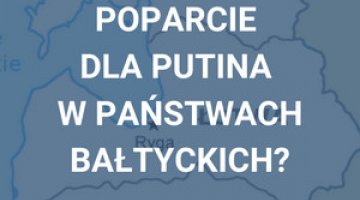Confusion over gas in Lithuania
On 12 April the Lithuanian media reported that there was a draft memorandum between the Lithuanian government and Russia’s Gazprom. According to this document Gazprom would reduce the price of gas by 20%. In exchange the Algirdas Butkevicius government would guarantee the safe transit of gas to Kaliningrad, extend the long-term gas contract with Gazprom until 2020, postpone the implementation of the third energy package for 31 October 2015, and freeze all litigation against Gazprom in arbitration and courts.It appears that this information has come as a surprise to Lithuania’s politicians, including the prime minister who affirmed that he was unaware of any draft memorandum. However, two days later Algirdas Butkevicius admitted that this offer had indeed been made. He claimed, however, that he learned about it on 15 April (two days after the media publicised it). As Butkevicius explained, on 4 April the Energy Ministry received the draft memorandum from Achim Saul, a board member of E.ON Ruhrgas and the chairman of the board of Lietuvos Dujos (in which E.ON holds 38.9% of shares). Four days later (on 8 April) the document with a confidentiality clause found its way to President Dalia Grybauskaite's, the Ministry of Foreign Affairs and the prime minister's chancellery. It remained, however, unnoticed. Algirdas Butkevicius pointed out that nobody was going to implement the document's guidelines. The Lithuanian prime minister also pointed out that on 5 April in St. Petersburg he and the CEO of Gazprom Alexei Miller agreed that contentious issues between Gazprom and Lithuania would be negotiated by expert groups and settled by July 2013. Despite the prime minister's explanations, the conservative opposition in the Seimas is demanding detailed information about the talks held with Medvedev and Miller as it suspects that the prime minister may be considering abandoning the energy strategy at the expense of short-term profits.
Commentary
- The way the media is carrying the story gives the impression that the Butkevicius government has been pursuing behind-the-scenes bargaining with Gazprom. This impression is further reinforced by Butkevicius issuing contradictory statements. Along with this, his declarations have not indicated so far that he would like to abandon the Lithuanian energy strategy currently in force. After having talked to Dmitry Medvedev, Butkevicius declared that Vilnius would not delay the implementation of the third energy package. On 8 April he said that Lithuania was not planning any new long-term contracts for gas supplies from Gazprom after the liquefied natural gas terminal was constructed in 2014. And finally, on 11 April Butkevicius announced that an agreement with the American company Chevron will be signed soon for the exploration and the extraction of shale gas in the western part of Lithuania.
- The question of the memorandum may be regarded as an offer (which had been expected for some time) which Vilnius has obtained by making Russia to put it forward as Lithuania demonstrates its determination in talks with Russia over energy issues. From the way in which this offer has been presented and made public it may be inferred that Russia has attempted to muddy the waters of the Lithuanian political scene, knowing that in the Lithuanian ruling coalition there is a lack of unanimity in issues regarding energy.





